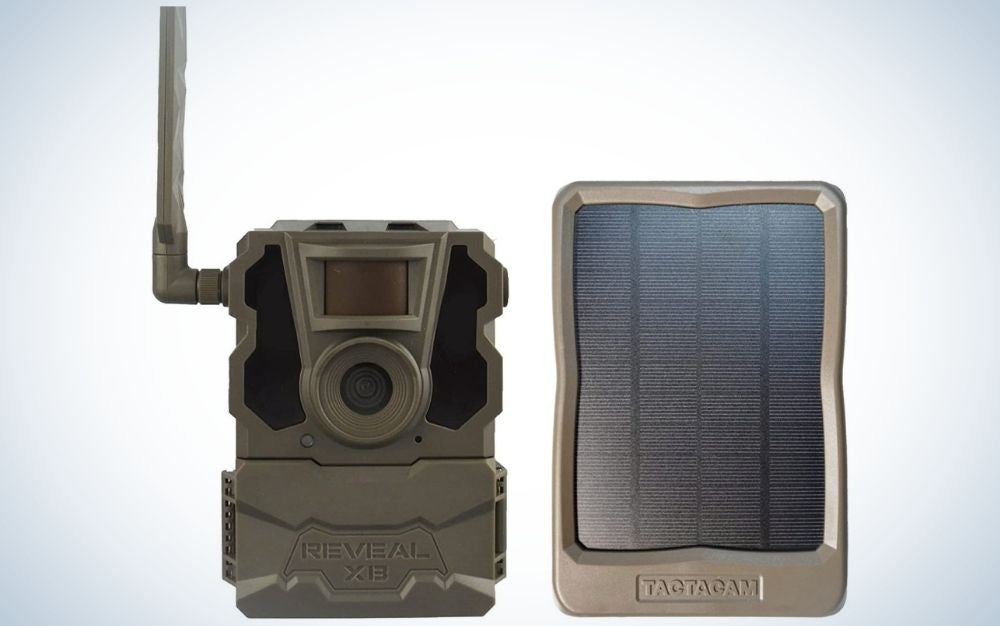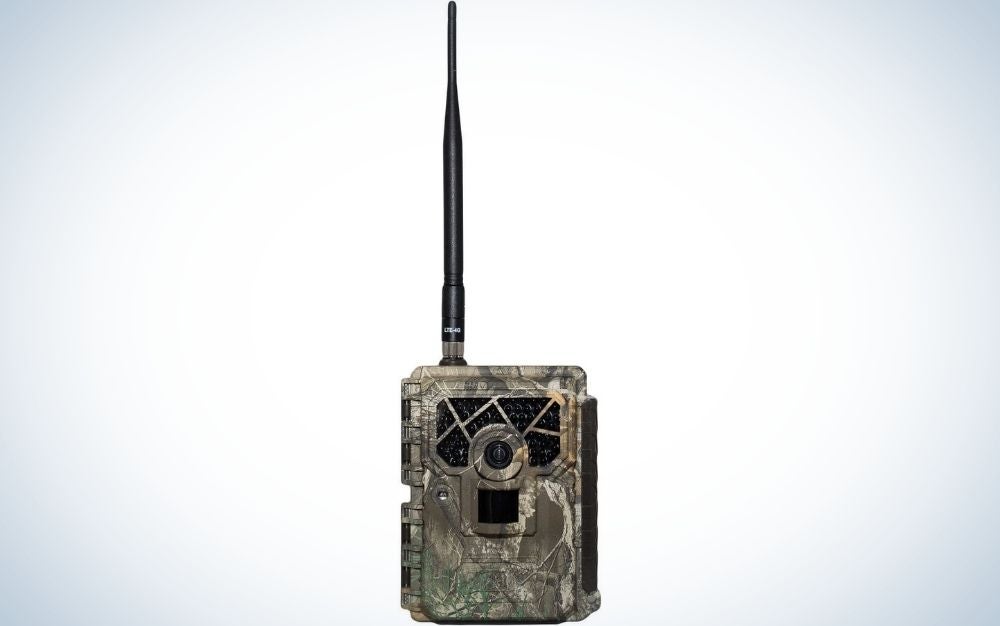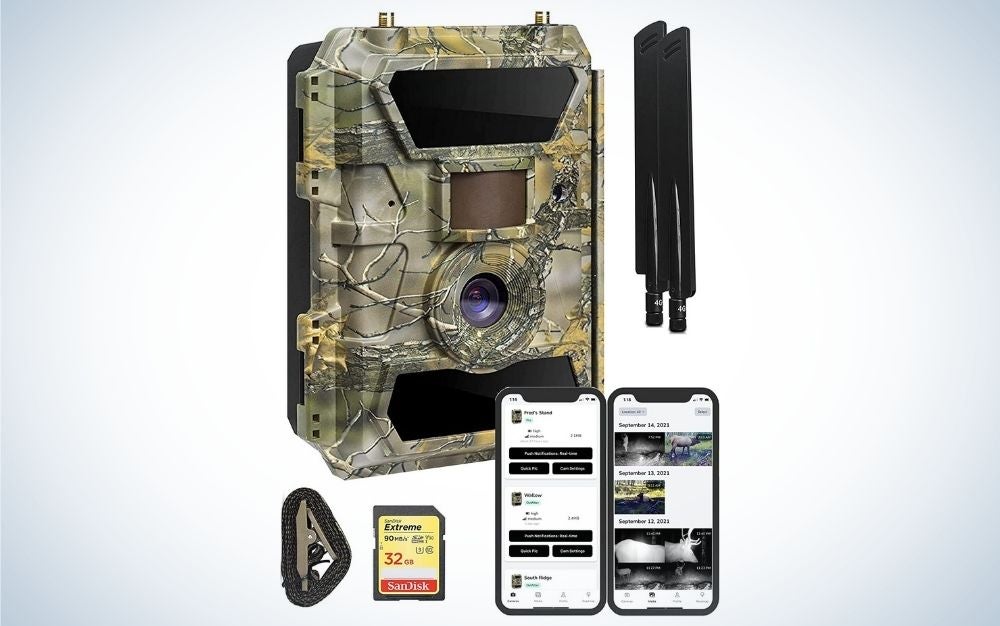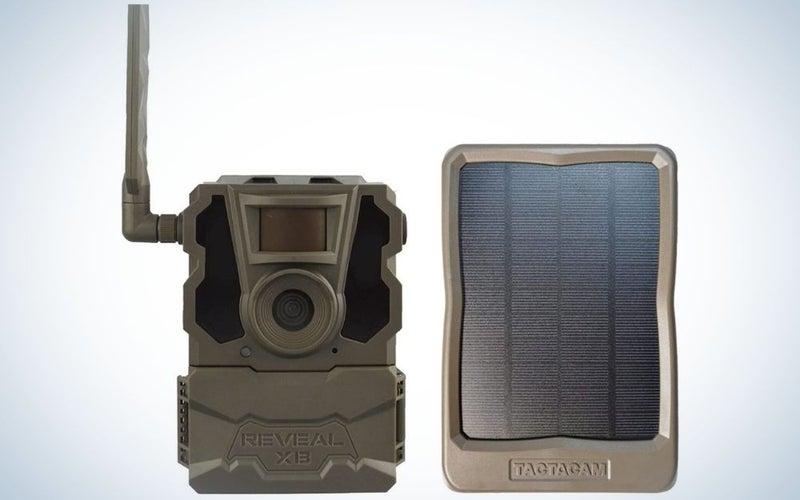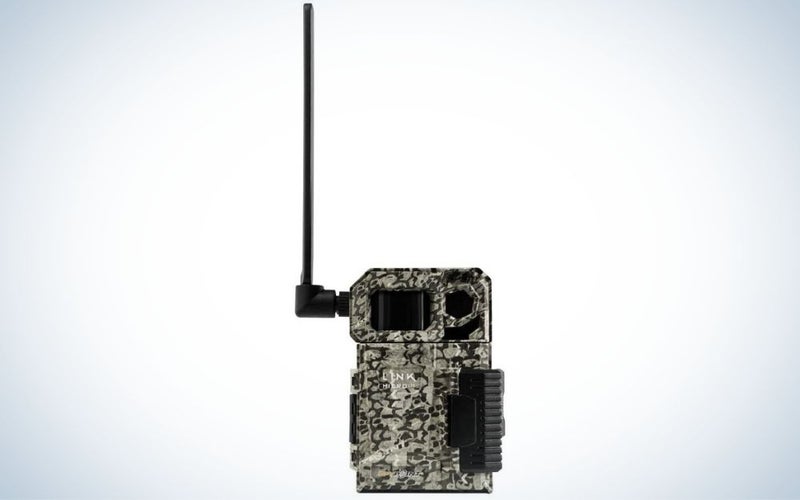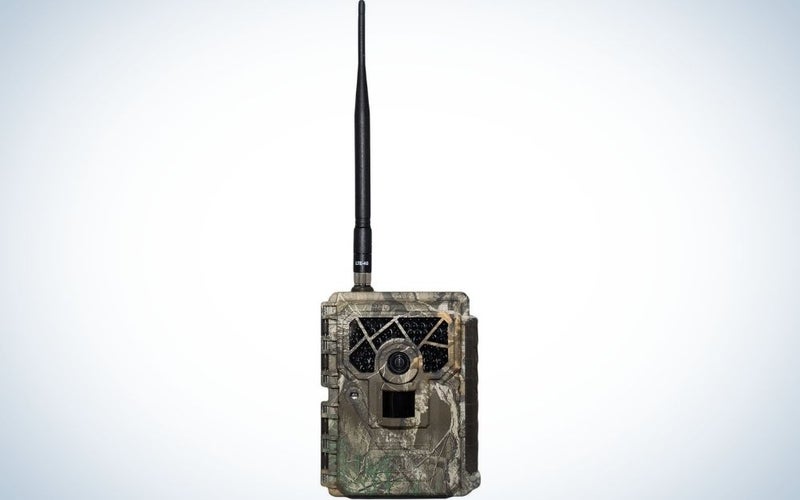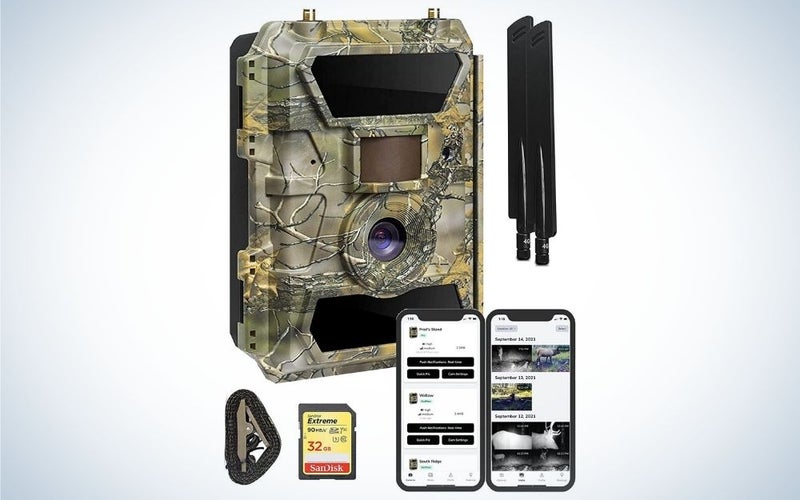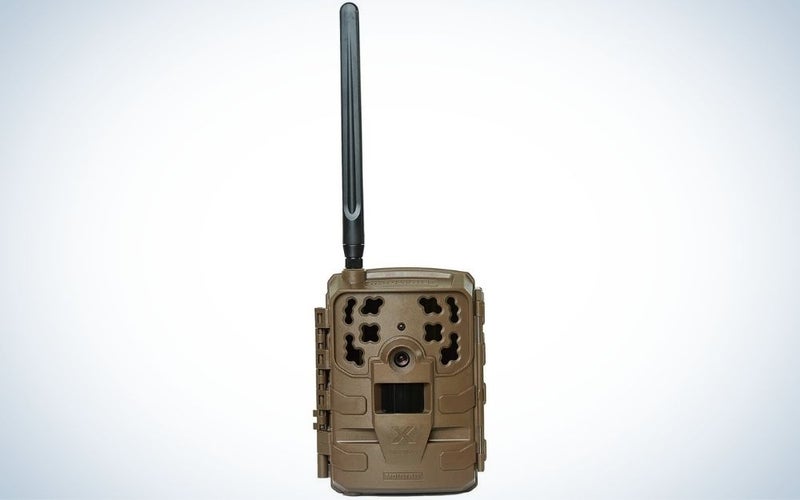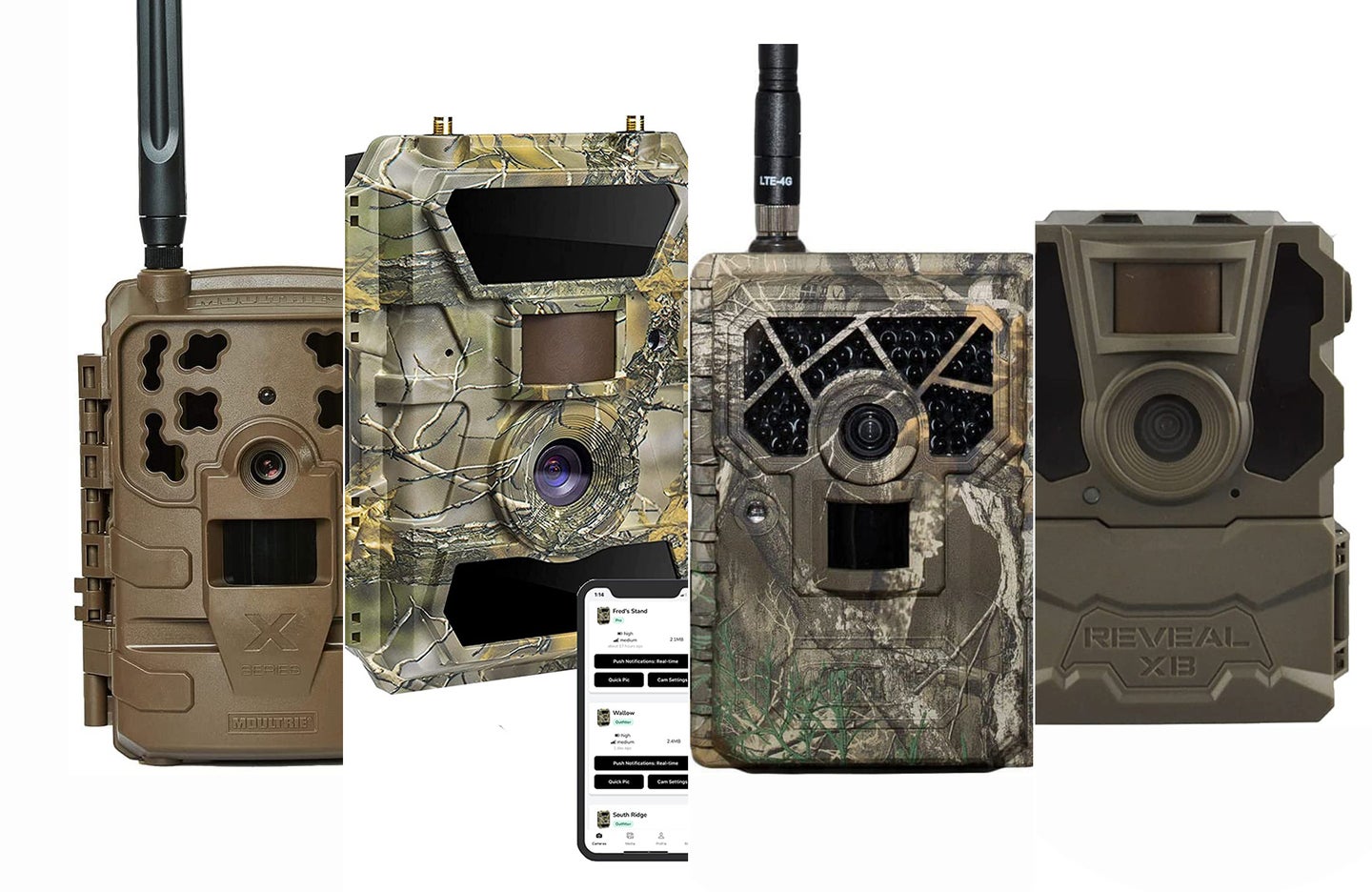
POV: an Eastern Screech Owl rotates its head and silently adjusts its gaze to watch the litter of fox kits lap water from a brook behind your mountain cabin. Or, maybe you just want to spy on the raccoons messing around in your suburban back yard. If you take an interest in the goings on in the natural areas that surround your world, there’s no better way to snoop on Mother Nature’s micro dramas than with a cellular trail camera. The best cellular trail cameras give you a set of ever watching eyes in the wilderness, that are ready to snap a photo at the first sign of movement and text it directly to your phone.
With a cellular trail camera you won’t need to trek out to that lonely stand of Aspen to get word that the mule deer have come to call on the seedlings, or hike the volcanic coastal slopes to know when that mated pair of albatross have returned to nest for the season. Cellular trail cameras use motion sensing technology coupled with quick shutter speeds, so that they always get the shot when animals happen by. Most feature capable night vision sensors and video as well.
Whether you’re monitoring the movements of a family of Night Heron on the coastal waters of Maryland, deer hunting in the Ozarks, or simply looking for an all weather security camera to keep trespassers (or bigfoot) off your rural property, cellular trail cameras make for versatile tools that help you monitor the peripherals of your outdoor domain.
- Best Overall: TACTACAM Reveal XB
- Best Budget: SPYPOINT LINK-MICRO-LTE-V
- Best Picture Quality: Covert Blackhawk LTE
- Best For Wet Conditions: Yellowstone.ai 4G LTE
- Best App: Moultrie Mobile Delta Base
How we picked the best cellular trail cameras
To pick the best trail cameras we examined a wide array of cameras from multiple makers. We looked for cameras that feature good motion detection and response time, crisp and detailed image quality, strong weather resistance, and easy to set up cell service. Special features like gps location data, and solid apps that actually helped ease of use were prioritized where we found them.
Things to consider when shopping for the best cellular trail cameras
Picture quality factored foremost in our picks. However in a trail camera the highest megapixel count doesn’t always translate to the best camera, Night vision capabilities were another important aspect of trail camera quality, as subjects often arrive at night. Thus we prioritized cameras with good infrared systems that emit and absorb radiation that’s not visible to the naked eye.
Battery life can be a make or break factor for a trail camera, especially for those looking to install a trail camera in a remote location. We looked for trail cameras that can hold a charge for months, as well as cameras with solar panels that emit the need for subbing out batteries all together.
Cellular connections among trail cameras vary. Many cameras require a monthly cellular subscription, which is usually under ten dollars. Solid cellular plans ensure that a camera will be able to transmit photos of whatever wildlife comes its way. A camera’s app also plays a crucial role in its efficacy. Some cameras pair with your phone through an app which allows you to adjust certain features.
Rugged build quality is another all important factor in trail camera quality. We looked for trail cams that survive in all weather conditions, holding up to snow and drenching rain. Some cameras get bonus points for optional weather shields viewers can install for particularly gnarly terrain.
Special features like GPS location and moon phase printed will appeal to some users. Some other cameras further make use of daisy chain connections to deliver photos from multiple cameras over one transmitter. We prioritized trail cameras with special features that work well, and ignored cameras that waste space on features that are less useful.
The best cellular trail cameras: Reviews and recommendations
Best cellular trail camera overall: TACTACAM Reveal XB
TACTACAM
Why It Made The Cut: TACTACAM delivers a trail camera with variable megapixel definition, good transmission, and AT&T or Verizon LTE capabilities.
Specs:
- Megapixels: 24MP/ 16MP/ 12MP/ 8MP photos
- Wireless Carrier: AT&T, Verizon
- Special Features: Solar powered, integrated GPS location tracking
Pros:
- Multicarrier capable
- IP66 Waterproof
- Doesn’t require batteries with solar panel
- 3 tiers of data plans
Cons:
- Pricey for unlimited photo data plan
As a bit of a classic in the hunting / trail cam community, the TACTACAM Reveal XB is a natural choice to sit at the helm of any cellular trail camera best of list. This HD trail camera delivers photos between 8 and 24 megapixels with under half a second trigger times. Night vision photos function at around 80 feet. Photos are delivered over AT&T or Verizon LTE. Swap networks by switching out SIM cards. The camera features an IP66 waterproof rating that certifies it’s protected from rain or snow.
A basic LTE plan costs a below average price, yet will only deliver 250 low definition photos a month. For unlimited photos you’ll have to either order them through the app for a charge, or upgrade to another tier of service that can cost over twice as much. For those who are fully engaged with their trail cam the unlimited photo option will prove worth it, however for casual users the subscription fee (which costs just a little less than HBOMax) could prove too expensive. If you want video, expect to pay even more.
The TACTACAM Reveal XB is also available as a single unit without a solar panel. We think the benefit of not having to worry about coming back to replace batteries makes the solar panel worth it. All in all, TACTACAM is a solid cellular trail camera. Its efficiency and quality make the slightly above average monthly subscription cost worth it.
Best trail camera for the money: SPYPOINT LINK-MICRO-LTE-V
SPYPOINT
Why It Made The Cut: This 10-megapixel trail camera capitalizes on reliable service that’s easy to use with your smartphone.
Specs:
- Megapixels: 10 megapixels
- Wireless Carrier: LTE
- Special Features: Spypoint app offers advanced features
Pros:
- Free app option for up to 100 photos a month
- Paid subscription services cheaper than some of the competition
- 80 foot detection range with multi-shot mode
Cons:
- Low megapixel count
- Poor customer service
- Requires multiple subscriptions for multiple cameras
This compact, versatile trail camera complements its solid hardware with a robust mobile app. The SPYPOINT LINK-MICRO-LTE-V packs its frills into the included app. The 10-megapixel camera with a .5 second trigger time doesn’t capitalize on high definition and speed the way some pricer cameras do, but with an 80 foot range, it delivers a good enough image for the purpose.
Using LTE the camera sends photos directly to you via app service. The service is far more affordable than some, offering a free plan with 100 photos, and priced plans from 250 photos to unlimited. A secondary subscription service can reduce the price of running multiple cameras simultaneously. The app comes with some extras built in, such as species recognition, mapping, and weather. The camera also stamps photos with some app included info, such as temperature and moon phase.
SPYPOINT delivers a solid camera with the LINK-MICRO. The line is further benefited by the available accessories such as the SPYPOINT SB-300S protection case. It also comes with a built-in solar panel for those who want to keep well aware of their hunting tract.
Best Picture Quality: Covert Blackhawk LTE
Covert
Why It Made The Cut: With a larger than average visual range, a strong multi-burst mode, and better than average resolution, Covert builds a great cellular camera.
Specs:
- Megapixels: 14 megapixels
- Wireless Carrier: Verizon & AT&T
- Special Features: 1-10 shot multi photo burst
Pros:
- Extra quiet operation
- 60-LED infrared night flash with 100 foot range for extra precise night shots
- Decent plan pricing for most needs
Cons:
- Poor video at night
- App is clunky
With an impressive 12 megapixel camera that’s primed for up to ten-exposure burst shots, the Covert Blackhawk LTE maximizes the odds that you’ll capture the action you’re looking for. Its infrared delivery is also impressive, using multiple LEDs for up to 100 feet of visibility at night. The magic happens under a rugged shell, guaranteed with a two year warranty. The camera accepts up to 32 gigabyte cards.
Covert doesn’t emphasize its app or overall ease of use and that shows. That detracts from its overall quality. The app is clunky. Video quality at night also isn’t the best. However the camera shines with photo bursts, better than average night photo field of view, and 12 megapixel video. All these qualities sum to better than average image delivery.
Best For Wet Conditions: Yellowstone.ai 4G LTE
Yellowstone AI
Why It Made The Cut: With IP66 waterproofing and a -13 degrees to 140 degrees fahrenheit range of operating temperatures, this is a versatile trail cam.
Specs:
- Megapixels: 12 megapixels
- Wireless Carrier: AT&T & T-Mobile
- Special Features: 1-5 images per trigger photo burst
Pros:
- Superior customer service compared to most other brands
- Easy to use cell hook up
- Works on international cell carriers
- Long battery life up to 20 weeks
- Compatible with solar panel and bear cage
Cons:
- Blurry photos at night
- Can take a few minutes for photos to arrive on your phone
From a small American company, Yellowstone.ai 4G LTE offers an impressively reliable trail camera. When you’re buying outdoor gear, a rugged build is usually front and foremost in your priorities. The Yellowstone camera offers IP66 waterproofing that protects it from rain, snow, and dust, while also extinguishing itself with a wider than average operating temperature between -13 degrees and 140 degrees Fahrenheit. That means that Yellowstone should be ready for most climates within the continental US.
The company’s customer service stands out from its competition. For whatever reason, trail camera manufacturers are not known for good customer service. However, Yellowstone does a better-than-average job at this.
As an actual camera Yellowstone does a good job for day photography. Its camera is responsive and decently detailed, though it falls behind some at crisp nighttime photography, often yielding somewhat blurry shots at night. If night photography is a priority for you, you may wish to look elsewhere, otherwise Yellowstone is an excellent trail camera.
Best App: Moultrie Mobile Delta Base
Moultrie
Why It Made The Cut: While expensive, the multi camera unlimited app service includes some handy tools for a dedicated hunter.
Specs:
- Megapixels: 24 megapixels
- Wireless Carrier: Verizon & AT&T
- Special Features: Versatile app service
Pros:
- Detects specific animals
- Activity charting within app
- High photo clarity
Cons:
- Pricey plan
The Moultrie Mobile Delta Base sports a 24-megapixel camera with a very respectable 80-foot range. However, it’s when the Moultrie is used in a group by a dedicated hunter that it becomes especially useful. While Moultrie’s app is one of the more expensive out there, it offers especially useful features, such as smart identification that can differentiate a buck from a deer, and data syncing with your other Moultrie cameras. It can even provide analytics on animal movements and detailed info on what’s happening in your neck of the woods.
The Moultrie’s price tag and monthly price makes it less affordable for most users, but if you’re looking for a premium fleet of trail cameras that work together like a spy net, then Moultrie delivers a powerful product.
Things to consider before you buy a cellular trail camera
Before you punch the credit card details in and order a cellular trail camera, consider a few crucial features.
Batteries or sunlight
When it comes to trail cameras, a solar panel can be a huge time saver. Not only will a solar panel save you batteries and trips to the forest, it could be the factor that makes your patch of woods home to your quarry. Wildlife will find your land more appealing if you’re not making frequent trips out on the terrain. So the solar panel that ensures you don’t have to return to the woods every three weeks to change out batteries could make those deer feel at home.
Data plan pricing & quality
When shopping for a cellular trail camera it’s important to consider the price of the data plan in the camera’s overall cost. These devices often require ongoing subscriptions that can cost over a hundred dollars a year. Subscription plans often cost between five and twenty dollars with varying sorts of benefits. It’s also important to consider whether the data plan delivers all the services you need out of it, such as lunar phase and GPS data.
Cellular Carriers
Most cellular trail cameras in the US offer Verizon and AT&T coverage. Picking the right service for your area is very important. Some trail cameras allow you to switch out SIM cards, however some may not. Consider what type of service you need before you buy.
FAQs
Q: Which is the best cellular trail camera?
We think that the TACTACAM Reveal XB is the best cellular trail camera for most users. Easy to use and versatile with 24 – 8 megapixel photos and half a second trigger times, it’s ready for most any situation you bring it to.
Q: What is the difference between wireless and cellular trail cams?
Wifi and cellular trail cameras work similarly, but they’re not to be confused. Wifi cameras require a steady wifi connection, they use this connection to send you updates. Cellular trail cameras on the other hand use a data plan via a cellular carrier such as Verizon or AT&T.
Q: How much does a cellular trail camera cost?
Cellular trail cameras cost anywhere from about a hundred dollars to a few hundred dollars. However for full functionality, most will require a subscription which increases the cost over time.
Q: Do cellular trail cams require a subscription?
Yes, cellular trail cameras require a subscription. Like a smartphone, these cameras text photos over a cellular data plan. However, subscriptions vary considerably in price and value.
Q: Are cellular game cameras worth it?
Cellular trail cameras can make all the difference when you’re monitoring a hard to reach environment. Many animals will avoid places that smell strongly of humans. Cellular trail cameras make it possible for you to monitor a place without going there for weeks at a time. This makes your life easier, while making the animals that call that place home dramatically more comfortable. Whether you’re a hunter, a conservationist, or someone that simply needs eyes in the woods that are ready to alert them when something passes at any time, cellular trail cameras can deliver great value. Moreover, cellular connections mean you can use these cameras anywhere that cell service reaches.
Final Thoughts
With rugged builds ready for myriad biomes, quick triggering night vision cameras, and cellular connections that keep you at home and animals comfy, cellular trail cameras are great investments for hunters, conservationists, and rural landowners. The best cellular trail cameras offer good cellular connections, strong night vision photography and video, high megapixel counts, and useful apps. Our favorite cellular trail camera is the TACTACAM Reveal XB with its versatile HD camera. We also love the more affordably priced (up front and subscription) SPYPOINT LINK-MICRO. If you need a pair of ever watching eyes to monitor a tract of woods near you, you’ll find a friend in a stealthy cellular trail camera.
The post Best cellular trail cameras of 2022 appeared first on Popular Photography.
